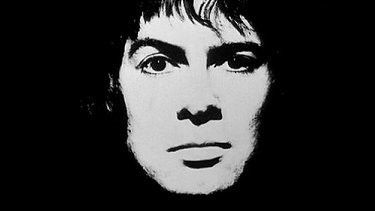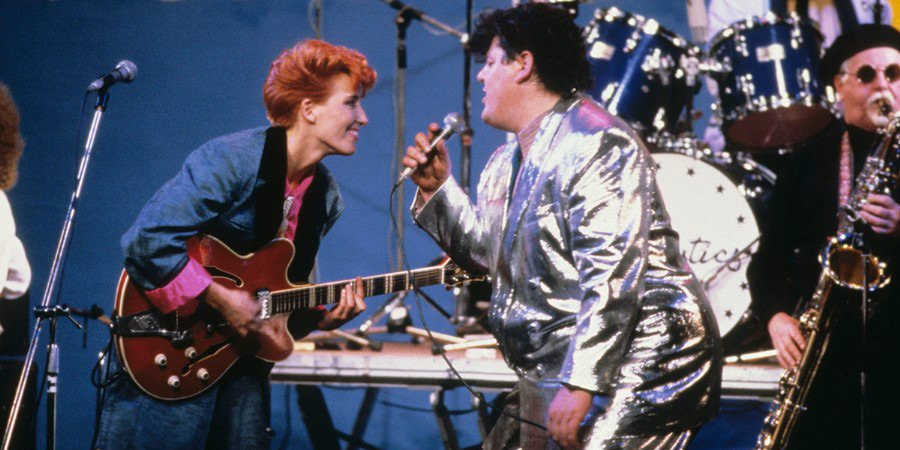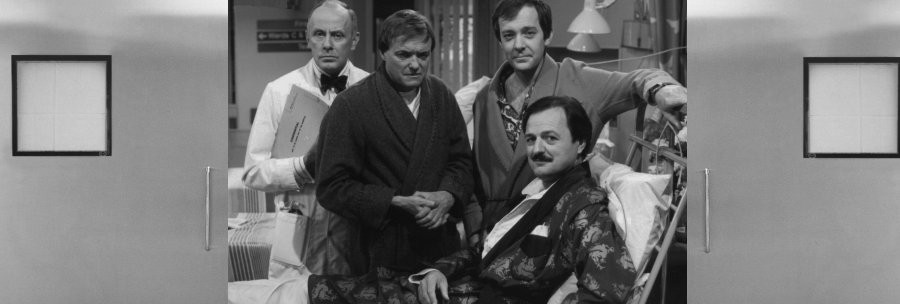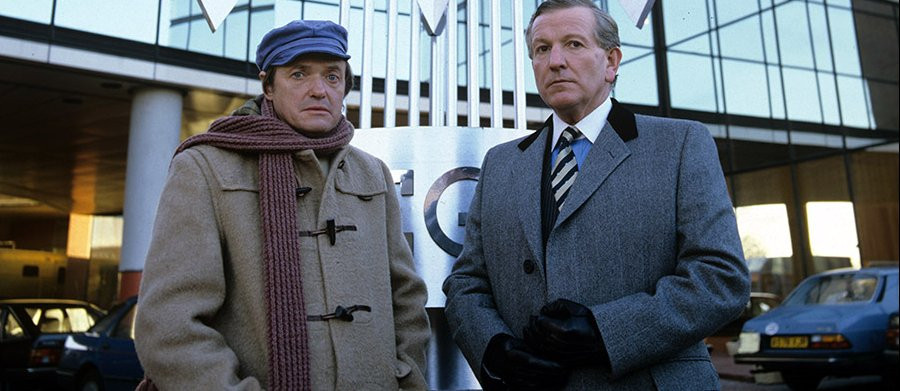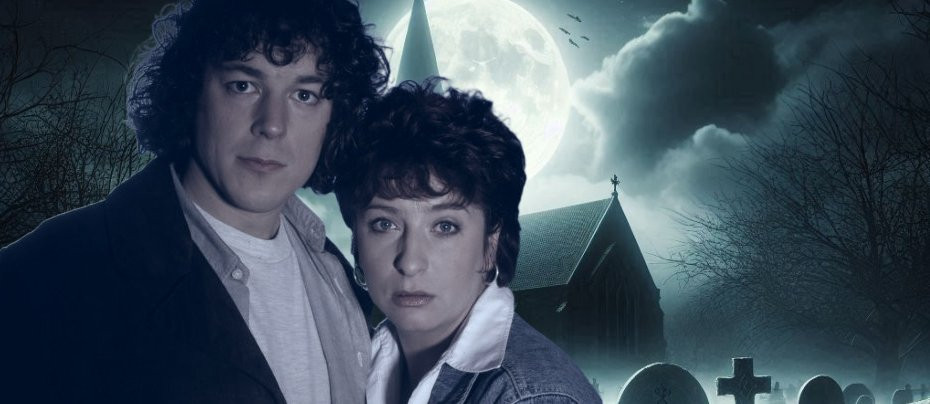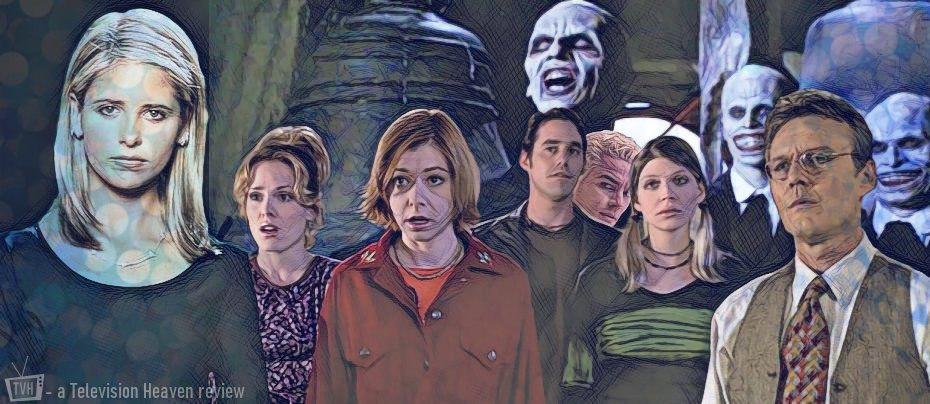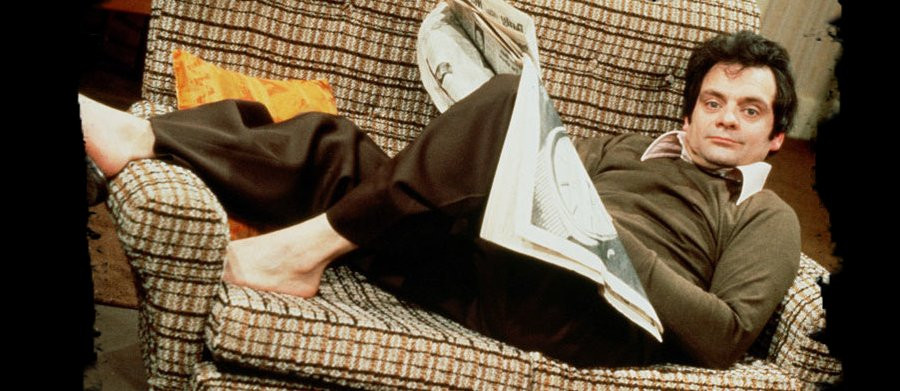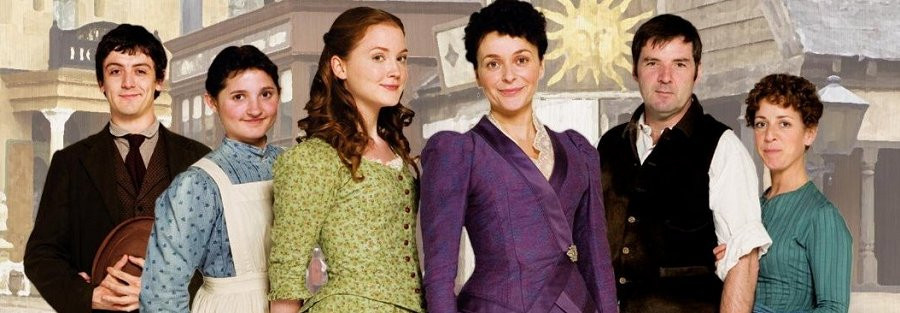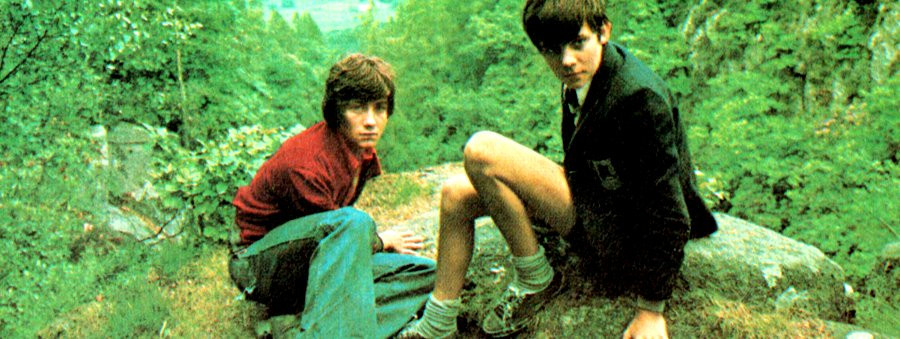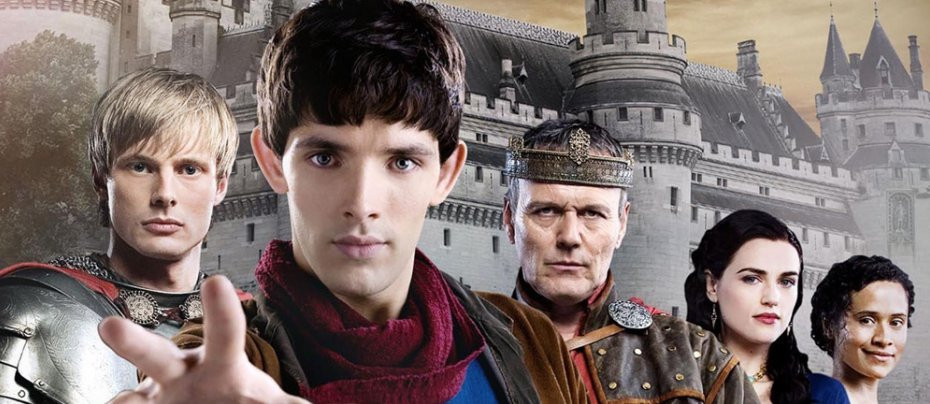
Merlin (2008)
2008 - United KingdomIt's one of the very few series that truly succeeded as a family fantasy drama in the modern era
Merlin review by Daniel Tessier
The legends of King Arthur may well be the best known, most influential and most beloved stories of the British Isles. Their origins are uncertain. It's possible that Arthur was based on a real figure who took power during the so-called Dark Ages following the Romans' abandonment of Britain, but if so, myth and hyperbole have obscured any remnant of truth. The bizarre historical inventions of the ancient Welsh text Historia Brittonum were elaborated on by Geoffrey of Monmouth in his equally fanciful 12th century blockbuster Historia Regum Britanniae – “The History of the Kings of Britain.” It was in this body of text that Arthur's wisest ally, the wizard Merlin, or Myrddin, first appeared, based on at least two semi-mythical figures from Welsh legend.
Old Geoffrey also introduced such timeless elements as Excalibur, Uther Pendragon, Guinevere and the mystical land of Avalon, before the French poet Crestien de Troies released his own series of tales later that century, incorporating Sir Lancelot and the Holy Grail. And people think pop culture remakes are a modern phenomenon! This sort of thing carried on through the Middle Ages, when people just couldn't get enough of Arthurian adventures, until Thomas Mallory's 15th century smash hit La Morte d'Arthur arrived and had the final word for about four hundred years.
Alfred Tennyson revamped the franchise for a 19th century audience with his series of epic poems Idylls of the King, the beginning of a popular obsession with Arthuriana that carried on in prose, on stage and, eventually, on screen. Dozens of permutations of Arthurian adventure have made it to the big and small screens, from the 1949 film serial The Adventures of Sir Galahad; cinematic epics such as 1981's Excalibur and 1995's First Knight; absurdist parodies such as 1975's Monty Python and the Holy Grail; animated classics films such as Disney's 1963 classic The Sword in the Stone; and television series from The Adventures of Sir Lancelot in the 1950s, to 1998's Merlin, one of the few to focus on the wizard, there played by Sam Neill.
So, come the 21st century, when Doctor Who's success proved that old fantasy properties could be revived to critical and popular acclaim, the BBC scrabbled around for other ideas to fill the gaps between series. Arthurian legend was perfect: it had handsome heroes, it had beautiful heroines, it had magic and mystery and monsters, and crucially, it was very much in the public domain. However, perhaps with the more intellectual hero-type of the Doctor in mind, the Beeb decided to centre the new show on the wizard Merlin. As early as 2005, the BBC had something like this in mind, with Chris Chibnall, later showrunner of Torchwood, Broadchurch and Doctor Who, writing the scripts. This version was ultimately not commissioned, and the idea went back to the drawing board (Chibnall did eventually get his own Arthurian drama series, the Irish-Canadian Camelot which aired for one season in 2011).
Merlin, also marketed overseas as The Adventures of Merlin, was created by a team made up of producer Johnny Capps, and writers Julian Jones, Julian Murphy and Jake Michie, who between them had extensive television experience on series including Hex, Demons, Sugar Rush and Robin Hood. The four J's entirely reimagined the story of Merlin and Arthur, reworking it for a family audience with a heavy leaning towards teens and young adults. Instead of the ancient, bearded wizard we might expect, this version of Merlin is a young man still finding his way in the world, about the same age as Prince Arthur, future King of Albion.
Colin Morgan (Humans, The Fall) stars as Merlin, born with innate magical abilities and sent away from his home in his late teens to live with his wise old uncle Gaius in Camelot, in the hope that he can learn from him how to control his powers. However, Camelot is a dangerous place for a young warlock, where magic has been outlawed and magical beings purged. Merlin is optimistic, uncertain of himself yet sometimes overconfident, and secretly builds his powers under the noses of the rulers of the kingdom. In the opening story, Merlin is drawn to a cave beneath the castle at Camelot, where Kilgharrah, the last dragon, is being held captive. In the distinctive, cultured tones of John Hurt (Doctor Who, The Naked Civil Servant, I, Claudius), the mighty CGI beast tells Merlin of his destiny to return magic to Camelot and help unite Albion under Arthur.
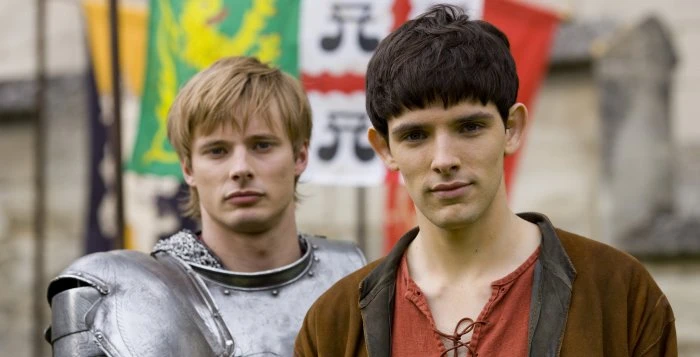
Bradley James (Damien, Medici: Masters of Florence) plays Arthur; he's the sort of handsome, charming actor who'd be the lead in any other fantasy adventure series but has to share the limelight here with Morgan. Arthur isn't a very likeable character to begin with; a bit of a jock, a childish bully, and as sure of his own importance as you'd expect a prince to be. However, he matures and proves that he is a compassionate and considerate young man, in keeping with his destiny. Merlin is assigned as his personal manservant and, although at the beginning their relationship is uneasy, they very soon become close friends.
It's a very different dynamic to the usual role of Merlin as teacher and mentor to Arthur as a young ward. Their friendship is strained at times by their differences in station and of opinion, but Merlin and Arthur become extremely close. Indeed, there's more than a little subtext of just friendship to their relationship, bolstered by the series' use of magic which many saw as a metaphor for LGBT identity. In a land where being magical is a crime, Merlin must constantly hide his identity, especially from Arthur, even as he uses his powers to help keep the prince safe. This often involves disguises; Merlin frequently transforms into an outlandish alter ego, “Dragoon the Great,” by ageing himself magically so that he resembles the image of Merlin we have come to expect. Merlin must lie continually about his nature and his actions, even as his other face becomes known in Camelot as wielder of magic and therefore a criminal and deviant.
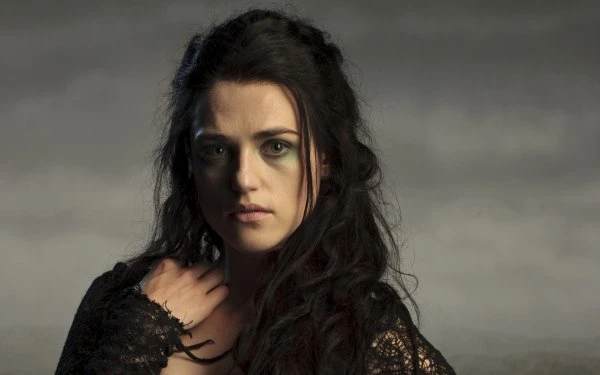
The greatest threat to Arthur, at least in the earlier part of the series, is Uther Pendragon, King of Camelot and Arthur's father. Played by Anthony Stewart Head (Buffy the Vampire Slayer, Little Britain), Uther rules sternly and deals harshly with anyone he suspects of using magic, blaming sorcery for the death of his queen. As the series progresses, the main antagonist role passes to his ward, Morgana, known in legend as Morgaine or Morgan le Fay. Played by Katie McGrath (Supergirl, Labyrinth), Morgana is a kind, compassionate and elegant young woman who comes to realise she has powerful magical abilities herself. Over time, though, Uther's hatred of magic and his brutal treatment of magical beings turns her against him. She plots to take the throne by any means necessary, seeing herself as the rightful heir as she is revealed as Uther's illegitimate daughter. Aiding Morgana is her maternal half-sister Morgause (Emilia Fox – Randall & Hopkirk (Deceased), Silent Witness), a sorceress of the old religion. Desiring power for her own reasons, she is instrumental in turning Morgana against Uther, Arthur and Merlin.
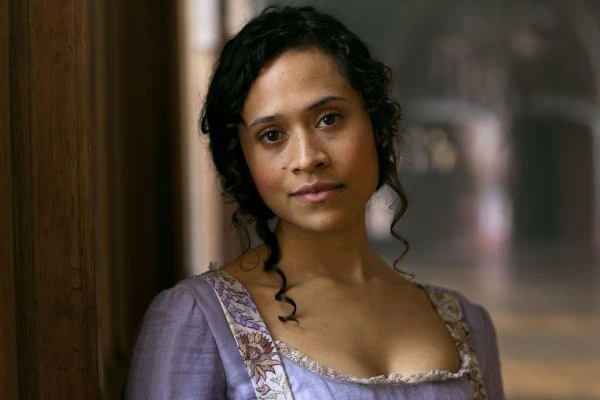
Matters are complicated by the attraction between Arthur and Morgana's maidservant, Gwen – or Guinevere. Played by Angel Coulby (Dancing on the Edge, Suspicion), Gwen's relationship with Arthur puts her in a dangerous position, as she is considered far too low-born by Uther for a place in his family. In many ways, Gwen's character and journey mirror Merlin's: she has a strong relationship with Arthur, is under threat from Uther, begins as a lowly servant to a high-ranking noble and develops from an uncertain and humble character into an experienced and powerful one. A lot of fuss was made at the time over Coulby's ethnicity, and while it might not quite fit with the legend of her character (Guinevere can be translated as “the white fay,” although this is arguable), it seems absurd to get hung up on the historical legitimacy of a mixed-race actor playing a mediaeval role when there are dragons and goblins running about the place.
By far the most entertaining of the main characters is Gaius, played by the unforgettable Richard Wilson. Having hidden his own past as a sorcerer from Uther, he remains the royal court's physician and a trusted counsellor, able to secretly tutor Merlin in the ways of magic and guide him along his destiny. He is nonetheless frequently exasperated by his young ward and the bizarre situations that he finds himself in. The series' best running joke is the occasional reference to Wilson's most famous role as Victor Meldrew in One Foot in the Grave, with Gaius repeatedly - almost, but never quite - quoting the character's famous catchphrase. “I can scarcely credit it!” “Could you believe such a thing? I couldn't!” (He does get to use the genuine catchphrase once as Gaius – on a very silly Children in Need skit.)
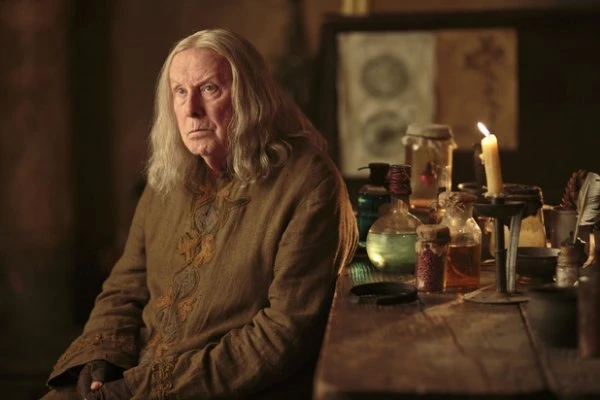
Running for five seasons, Merlin featured a large array of recognisable faces playing legendary characters. The young Druid Mordred, fated to be one of Merlin and Arthur's greatest foes, is played as a child by Asa Butterfield (Sex Education) and later as an adult by Alexander Vlahos (Versailles). Santiago Cabrera (Star Trek: Picard, The Musketeers) makes for a dashing and charismatic Sir Lancelot. Other knights include Rupert Young (Bridgerton) as Sir Leon, better known in Arthuriana as Sir Lionel, frequently Arthur's second-in-command; Tom Hopper (Game of Thrones, The Umbrella Academy) as Sir Percival; Eoin Macken (Nightflyers) as Sir Gwaine and Adetomiwa Edun (Bates Motel) as Sir Elyan. Michael Cronin (The Wars of the Roses) appears as Geoffrey of Monmouth himself, here acting as the court's genealogist and master of ceremonies. The powerful and ageless witch Nimue, played by Michelle Ryan (EastEnders, Jekyll), was once ally to the royal family before banishment by Uther.
Of course, as well as sorcerers and dragons, Camelot and its environs are full of other magical beings and unlikely creatures, all of them declared illegal by Uther's ban on magic. Straight from Arthurian legend comes the snake-headed Questing Beast, with unicorns, manticores, gryphons and a phoenix all appearing on the series. Some of the best guest roles go to actors willing to become monsters for a week: Sarah Parish (Blackpool) gives a hilarious turn as a troll who bewitches Uther; Charlene McKenna (Raw, Peaky Blinders) portrays the vampiric Lamia; Maureen Carr (Molly and Mack) gives a memorable turn under latex as the hideous hag, the Dochraid; the legendary Miriam Margolyes (Blackadder, Call the Midwife) plays a ruddy-faced, warty pixie.
Other guest stars had only voice roles, such as Mark Williams (The Fast Show, the Harry Potter franchise), who had a memorable turn voicing a mischievous goblin, and Josette Simon (Blake's 7, Seekers), who voiced the bizarre, big-brained Euchdag, an alien-like invention of the writers. While Kilgharrah is quite impressive, the CGI budget was stretched by the various other otherworldly creatures; those who were realised by physical effects and prosthetics were generally more effective.
Merlin and Arthur endured five series of increasingly dangerous adventures, with Morgana's ascent to chief villain in the third series stepping up the threat, with her destiny entwined with Merlin's and her victory dependant on Arthur's death. Eventually we saw Arthur on the throne, where the pressures of running an increasingly threatened kingdom took their toll on his moral stance, breaking his word to end the ban on magic. The friendship between Merlin and Arthur became more strained, allegiances were made and broken, secrets were revealed, and a great deal of blood was spilled. On Christmas Eve 2012, the series finale, “The Diamond of the Day,” saw twists and turns throughout, ending the series with a hollow victory, and while Camelot is secure, tragedy outweighs success. The final scene is surprising and bittersweet, the legend brought up to date with a final, unexpected glimpse at Merlin's long life.
Merlin was a tremendous success, being exported to over 180 countries, being nominated for various television awards and winning several, including multiple best actor mentions for Morgan and the winning place in the 2013 SFX Awards and 2013 National Television Awards. It's one of the very few series that truly succeeded as a family fantasy drama in the modern era, capturing the audience's imagination and leaving a lasting impression. Johnny Capps and Julian Murphy followed Merlin with Atlantis, another series inspired by legend, which aired in the same slot but failed to achieve the same success.
Seen this show? How do you rate it?
Seen this show? How do you rate it?
Published on April 21st, 2024. Written by Daniel Tessier for Television Heaven.


